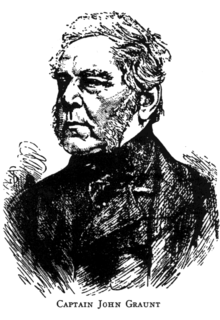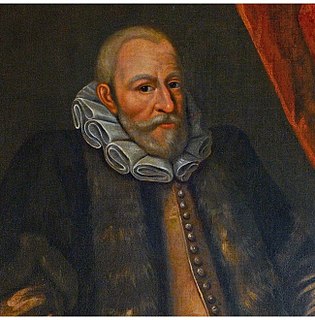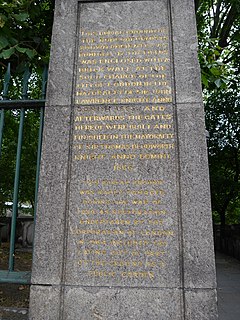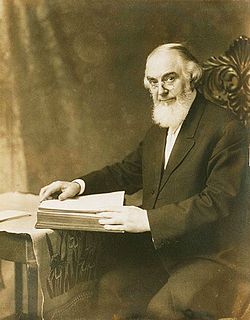 W
WIn British English, a haberdasher is a business or person who sells small articles for sewing, dressmaking and knitting, such as buttons, ribbons, and zips; in the United States, the term refers instead to a retailer who sells men's clothing, including suits, shirts, and neckties.
 W
WWilliam Adams (1585–1661) was a 17th-century London haberdasher born in Newport, Shropshire who, in 1656, founded Adams' Grammar School, now called Haberdashers' Adams. Since his death in 1661, the school has been governed by the Worshipful Company of Haberdashers.
 W
WRobert Aske was a merchant and haberdasher in the City of London. He is remembered primarily for the charitable foundation created from his estate, which nowadays operates two schools in Hertfordshire, Haberdashers' Boys' School and Haberdashers' School for Girls, and others elsewhere.
 W
WSir William Billers was an English haberdasher who was Alderman, Sheriff and Lord Mayor of London.
 W
WWilliam Cookesbury or Coksbery was a London capper and haberdasher.
 W
WRoger Crab was an English soldier, haberdasher, herbal doctor and writer who is best known for his ascetic lifestyle which included Christian vegetarianism. Crab fought in the Parliamentary Army in the English Civil War before becoming a haberdasher in Chesham. He later became a hermit and worked as a herbal doctor. He then joined the Philadelphians and began promoting asceticism through his writings.
 W
WDaniel Day, known as Dapper Dan, is an American fashion designer and haberdasher from Harlem, New York. His influential store, Dapper Dan's Boutique, operated from 1982–92 and is most associated with introducing high fashion to the hip hop world, with his clients over the years including Eric B. & Rakim, Salt-N-Pepa, LL Cool J, and Jay-Z. In 2017, he launched a fashion line with Gucci, with which he opened a second store and atelier, Dapper Dan's of Harlem, in 2018.
 W
WDaniel Defoe was an English writer, trader, journalist, pamphleteer and spy. He is most famous for his novel Robinson Crusoe, published in 1719, which is claimed to be second only to the Bible in its number of translations. He has been seen as one of the earliest proponents of the English novel, and helped to popularise the form in Britain with others such as Aphra Behn and Samuel Richardson. Defoe wrote many political tracts and was often in trouble with the authorities, and spent a period in prison. Intellectuals and political leaders paid attention to his fresh ideas and sometimes consulted him.
 W
WSir Francis Eyles, 1st Baronet was Governor of the Bank of England and a baronet in the Baronetage of Great Britain.
 W
WJohn Fowke was an English merchant and politician. He served as a Sheriff of London for 1644 and Lord Mayor of London for 1652.
 W
WJohn Graunt has been regarded as the founder of demography. Graunt was one of the first demographers, and perhaps the first epidemiologist, though by profession he was a haberdasher. He was bankrupted later in life by losses suffered during Great Fire of London and the discrimination he faced following his conversion to Catholicism.
 W
WChester Earl "Chet" Holifield was a businessman and politician, a United States Representative from California's 19th congressional district. He was known for his work on issues of atomic energy.
 W
WWilliam Jones was a London haberdasher, born in Newland, Gloucestershire, England. He is remembered for his bequests, which led to the establishment of schools in Monmouth and Pontypool, almshouses at Newland, and the so-called "Golden Lectureship" in London.
 W
WSir John Lawrence was an English merchant who was Lord Mayor of London from 1664 to 1665. He was therefore Lord Mayor during the period of the Great Plague of London.
 W
WSir George Newnes, 1st Baronet was an English publisher and editor and a founding father of popular journalism. Newnes also served as a Liberal Party Member of Parliament for two decades. His company, George Newnes Ltd, was known for such periodicals as Tit-Bits and The Strand Magazine; it continued publishing ground-breaking consumer magazines such as Nova long after his death.
 W
WCharles Taze Russell, or Pastor Russell, was an American Christian restorationist minister from Pittsburgh, Pennsylvania, and founder of what is now known as the Bible Student movement. After his death, Jehovah's Witnesses and numerous independent Bible Student groups developed from this base.
 W
WHarry S. Truman was the 33rd president of the United States, serving from 1945 to 1953. A lifetime member of the Democratic Party, he previously served as the 34th vice president from January to April 1945 under Franklin Roosevelt, and as a United States Senator from Missouri from 1935 to January 1945. Having assumed the presidency after Roosevelt's death, Truman implemented the Marshall Plan to rebuild the economy of Western Europe and established both the Truman Doctrine and NATO to contain the expansion of communism. He proposed numerous liberal domestic reforms, but few were enacted by the Conservative Coalition that dominated the Congress.